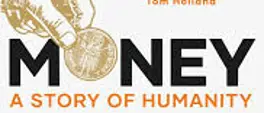Godongwana rules out introducing wealth tax, says it will contribute to capital flight
Lindsay Dentlinger
12 May 2025 | 14:02The finance minister said if he's to start taxing wealthy individuals, they would rather start to consume their income or take it offshore.
CAPE TOWN - As a third national budget day inches closer, Finance Minister Enoch Godongwana is ruling out introducing a wealth tax as an alternative to value-added tax (VAT).
It's an alternative proposal the two main opposition parties, uMkhonto weSizwe (MK) and the Economic Freedom Fighters (EFF), have been agitating for.
But in response to a parliamentary question from the MK Party, Godongwana said that introducing a wealth tax would discourage savings and contribute to capital flight.
The finance minister said if he's to start taxing wealthy individuals, they would rather start to consume their income or take it offshore.
Godongwana said that such a scenario would damage South Africa's long-term development prospects.
SARS data indicates there are around 2,850 individuals with net assets above R50 million.
Their local assets are valued at R245 billion and their foreign assets a further R150 billion.
This group pays R7 billion in personal income tax, which includes returns on foreign assets.
"Should this group decide to relocate, it would impact negatively on capital and investment flows, as they often have business interests which generate employment and contribute towards economic growth and capital formation locally," read Godongwana's reply.
The country's three main tax sources - personal income tax, value-added tax and corporate income tax - account for more than 80% of total tax revenue.
Godongwana said that raising corporate income tax, another suggestion by the MK Party, would be the most detrimental to economic growth and could affect revenue collection in the long run.
He noted that South Africa's CIT rate was already high compared with other countries and raising it further will impact workers and consumers and not only shareholders.
















